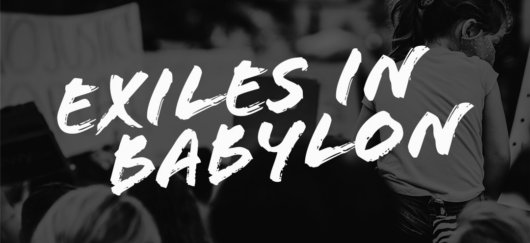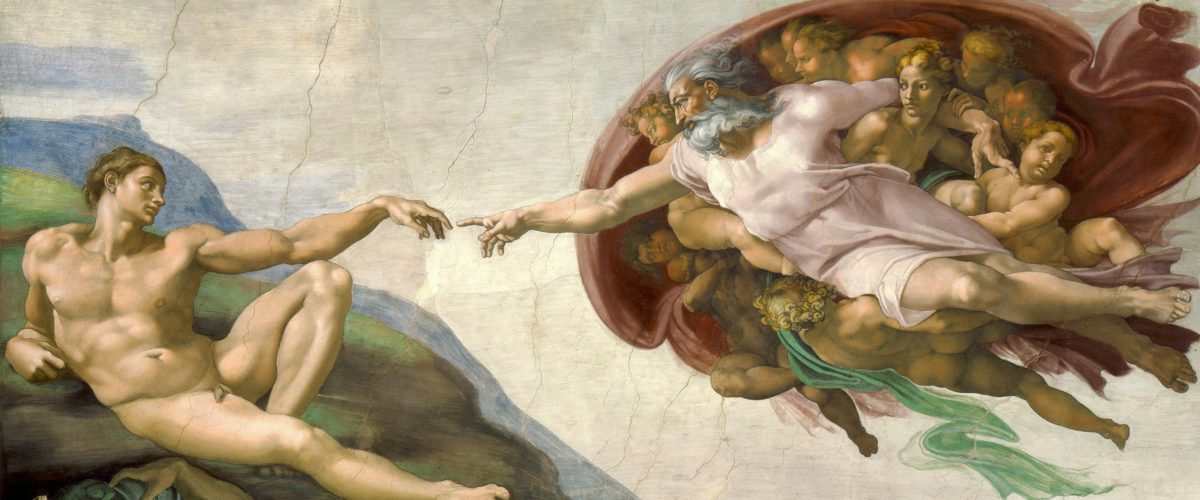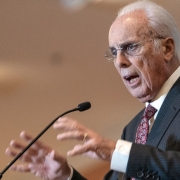Exiles in Babylon conference gets so much right but can’t apply its logic about race to sexuality
This article originally appeared on April 6, 2022 at Baptist News Global.
While many conservative evangelicals focus on fighting culture wars in an attempt to save the United States from progressive ideologies, New York Times bestselling author Preston Sprinkle seems to have accepted that Christians should reimagine their identity as exiles rather than as culture warriors.
As host of the popular Theology in the Raw podcast, Sprinkle created the Exiles in Babylon conference, which held its first meeting March 31 through April 2 in Boise, Idaho, and was available for streaming online. According to the event website, “The Bible has a name for the country we’ve been exiled to: Babylon. As exiles living in Babylon, we need to think biblically, Christianly, indeed exilically — not partisanly — through cultural and political issues.”

Preston Sprinkle
Sprinkle’s desire to think “exilically” rather than “partisanly” means he can be rather difficult to box into stereotypical dichotomies for many people. On one hand, he is a pacifist who opposes war and the death penalty, speaks out against gun violence, promotes social justice and even rejects the idea of hell as eternal conscious torment. But on the other hand, he remains unaffirming of LGBTQ people and believes in the absolute authority of the Bible.
The Exiles in Babylon conference reflected Sprinkle’s desire for diversity within the parameters he believes are compatible with biblical Christianity. Speakers included a variety of theological perspectives, races, genders and even included LGBTQ people who are not affirming of same-sex relationships.
The conference was organized into four main sessions that focused on unity and exile, sexuality and gender, racism and Critical Race Theory, and the nature of hell.
As the conference unfolded, it became clear there was much to affirm regarding organizers’ ultimate desire for unity and wholeness, but that there also is a disconnect between how they address sexuality and how they address race. As a result, I walked away from the conference having learned so much, while also wondering why its good news wasn’t quite good enough.
“I walked away from the conference having learned so much, while also wondering why its good news wasn’t quite good enough.”
A meta-narrative of unity, the fall and human desire
During his sermon about how the American church created and profited from racism, Thabiti Anyabwile said, “If you don’t know the story you are living in, you can’t understand the story that you’re living out … . The meta-narrative shapes the mini-narrative of our personal stories and biographies.”

Thabiti Anyabwile
Anyabwile is pastor of Anacostia River Church in Washington, D.C., and a popular author.
The meta-narrative of the Exiles in Babylon conference began with human dignity based on the unity and wholeness described in Genesis 1-2 and reflected at the Lord’s Table.
Sprinkle said even to those present who might disagree with him: “You are welcome here because you bear the imago dei, the image of God. He delights in you. And God’s favor is on all of you.”
Francis Chan, also a popular Christian author, preached about the God “who just spoke and said, ‘Earth,’ and the entire earth appears.” He said we’re missing “that deepness, that oneness, that true connection that we were created for.”

Francis Chan
In a sermon that carried many Catholic connotations, Chan spoke of the uniting of heaven and earth, the divine and the human in the womb of the Virgin Mary. Imagining that a woman in the audience was the Virgin Mary, Chan said, “How would you treat her? … How much honor would you show her? … I am not going to mess with her … Do you believe the Holy Spirit of God is inside of me? … Do I believe that about you? That God is inside of you? Then how would I treat you? … We should treat everyone who has the Spirit of God in them like we would treat the Virgin Mary. To say to a son of God, ‘You’re not welcome at our table,’ … what does God think when you refuse to invite certain ones of his children?”
This emphasis on human dignity was a much-welcomed nuance from the emphasis on human depravity that so deeply shapes many other conservative evangelical conferences today.
Still, the problem of sin and exile has to be dealt with. According to Eli Bonilla, Masters Fellow with OneHope: “The exile started in Eden, where Adam and Eve fell and were exiled away from the garden.”

Jackie Hill Perry
Christian author Jackie Hill Perry added, “Because we’re born after Adam, I believe that orientates us toward sinfulness.”
So the big story, according to this conference, was that humans were created unified and whole but then fell into separation and brokenness due to the sin of Adam.
Just as their understanding of the human story is one of unity from which we fell, Chan also mapped that narrative onto church history, claiming: “For the first 1,500 years after Christ … the body and blood were always central … Jesus was at the center … . It was one church for a thousand years. And then it was two or three for the next 500. And then it split into this? Why can’t we go back? … There was a time when the church was one. A long time. A thousand years.”
According to this story, while we are fallen and separated, we all desire to be reconciled to unity and wholeness again. Chan said: “There’s a younger generation that wishes there were no labels. They don’t want to be called Presbyterians or Baptist or Roman Catholics or Eastern Orthodox. They don’t want to be called evangelical or Protestant … . They want this oneness that Christ prayed for.”
A mini-narrative of broken sexuality and gender
The most heart-breaking session of the conference for me by far was hearing the stories of the LGBTQ speakers.










Leave a Reply
Want to join the discussion?Feel free to contribute!